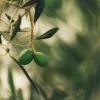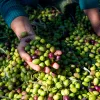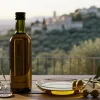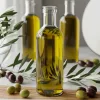The olive tree, with its millennia-long lifespan, symbolizes nature’s continuity. Yet, in the modern era, increasing environmental pressures, climate change, and fast-paced consumption habits threaten this legacy. This is where the concept of sustainable olive groves comes to the forefront.
Sustainable agriculture aims not only to increase production but also to protect soil, water, and ecosystems. In olive groves, the use of drip irrigation systems, the shift toward organic solutions instead of chemical fertilizers, and the preservation of biodiversity form the cornerstones of this approach.
These methods not only enhance the quality of olive oil but also reduce environmental impact. They enable lower water consumption, reduced carbon emissions, and more efficient soil use. As a result, nature is preserved, and farmers benefit from a more stable production process in the long term.
For brands, sustainability is not just a marketing tool; it is a realm of responsibility. Consumers are increasingly gravitating toward products with ethical values. The most significant legacy we can leave for future generations is one that safeguards both nature and culture. Every drop of olive oil that travels from groves to tables should carry this consciousness.











